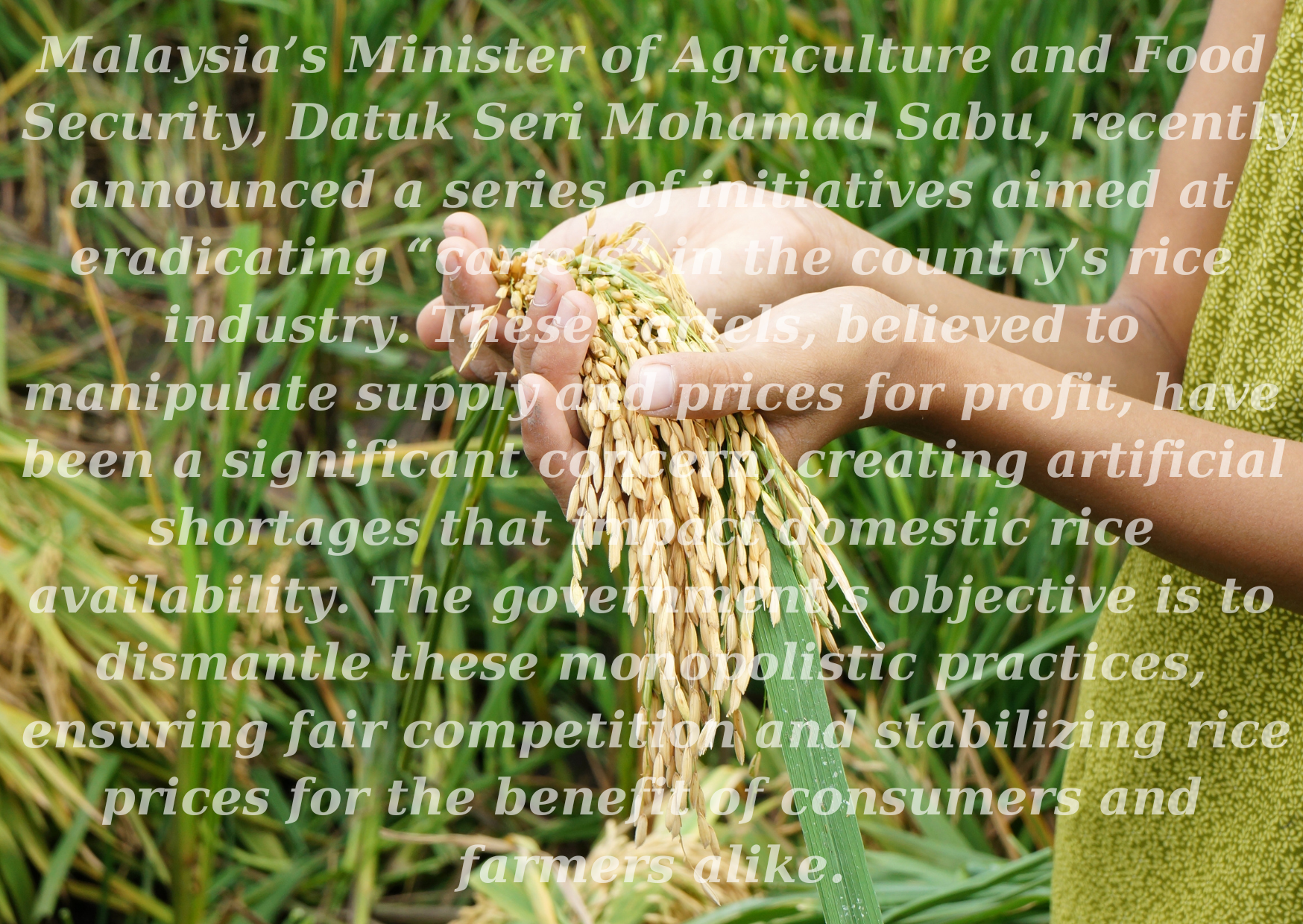Malaysia Takes Decisive Steps to Eliminate Rice Cartels in 2025

Malaysia’s Minister of Agriculture and Food Security, Datuk Seri Mohamad Sabu, recently announced a series of initiatives aimed at eradicating “cartels” in the country’s rice industry. These cartels, believed to manipulate supply and prices for profit, have been a significant concern, creating artificial shortages that impact domestic rice availability. The government’s objective is to dismantle these monopolistic practices, ensuring fair competition and stabilizing rice prices for the benefit of consumers and farmers alike.
In 2025, the Malaysian government will implement new policies and regulations to open up rice imports and enhance monitoring of supply and distribution channels. These measures aim to prevent profiteering and market manipulation by companies or groups seeking to dominate the industry. The Ministry of Agriculture and Food Security will work closely with other authorities to ensure thorough oversight, addressing any irregularities that may harm the market. These initiatives represent a strong stance against exploitation, signaling a commitment to restoring fairness in the rice sector.
The government’s efforts to eliminate cartels will also foster competition within the rice industry, which is expected to result in stabilized prices and improved food security. By encouraging a more competitive environment, Malaysia aims to protect the interests of farmers, small-scale producers, and consumers. These changes will create a level playing field, enabling smaller players to thrive while ensuring that consumers have access to affordable rice. This approach reflects a holistic strategy to balance market dynamics and national food security goals.
Beyond addressing cartels, Malaysia is also focused on boosting domestic rice production to reduce its reliance on imports. By increasing local production, the government aims to create a steady supply chain that can withstand external shocks and maintain reasonable rice prices. These efforts, coupled with consistent policies and strict regulatory oversight, are expected to make the Malaysian rice market more stable and transparent in the coming year. The Minister emphasized that these actions are critical not only for the industry but also for the nation’s food security and economic stability.
This decisive action by the Malaysian government underscores its commitment to eliminating cartel activities, promoting a competitive rice industry, and ensuring a sustainable and transparent supply chain. The combination of new regulations, enhanced monitoring, and domestic production support reflects a comprehensive strategy to safeguard the rice market and protect the welfare of Malaysian citizens.
